<< Previous | Displaying results 281-290 of 6769 for "" | Next >>
The second of two children, Andras was born to Jewish parents living in a suburb of Budapest. His father was a pharmacist. The Muhlrads lived in a large house with Andras' grandfather and aunts. As a toddler, Andras often played with his older sister, Eva, and their cousins in the big yard behind their home. 1933-39: Andras was 4 when his family moved to their own apartment. It was 1936 when he began primary school and Hitler had already been in power in Nazi Germany for three years. At night his father…
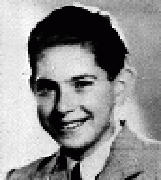
Jeno was the youngest of five children born to Jewish parents living in a suburb of Budapest. His father was a wholesale merchant who sold beer to restaurants and stores. After receiving a university diploma, Jeno became a pharmacist. He and his wife, Aranka, and their two children, Eva and Andras, shared a large old house in Ujpest with Jeno's father and other members of the extended family. 1933-39: Jeno's friends and family have helped him raise the large amount of money he needs to lease his own…
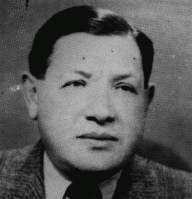
Malvin and her eight brothers and sisters were born to religious Jewish parents in the small town of Buj in northeastern Hungary. The family later moved to the village of Zalkod, where Malvin's father ran a general store. The Katz family lived in a sprawling farmhouse with a large garden and fruit orchards. Malvin married Sandor Fried, the brother of her sister Sadie's husband, Hermon. 1933-39: Malvin's oldest sister, Sadie, who immigrated to the United States many years ago, has come home for a visit.…
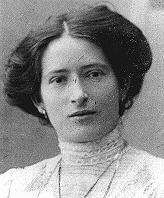
The fourth of five children, Kato was born to a Jewish family who owned a successful furniture store and lumberyard in Ujpest, five miles from Budapest. As a young girl, Kato enjoyed singing and playing the violin in her family "orchestra" in their large home. She was also athletic, and loved to swim, bicycle and play tennis. Best of all, Kato enjoyed rowing on the Danube with her friends. 1933-39: Newly married, Kato moved to Zagyvapalfalva, a town northeast of Budapest with only five or six Jewish…
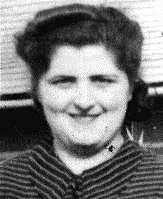
Judith was the only child born to a Jewish couple who lived in Hatvan, a small town 36 miles northeast of Budapest. Judith's father worked in his brother's business, marketing grains and other agricultural products purchased from local farms. When she was 3, Judith gave her first public recitation of poetry, an interest that she pursued throughout her childhood. 1933-39: Judith's family wasn't religious--they were Hungarians who happened to be Jewish, and their family was well-liked in Hatvan. But in the…
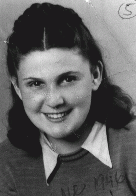
The youngest of eight children, Helen was born and raised in a religious Jewish family living in a town in northeastern Hungary. She was the "baby" of the family and the focus of everyone's hopes and affection. Although her Hebrew name was Hannah, her family called her by her nickname, Potyo, which meant "the dear little one." 1933-39: Helen liked school, but was afraid because some of the kids and teachers hated Jews. There was talk that there might be a war. Her mother wanted them to leave Hungary…
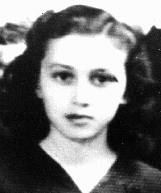
Magda was the oldest of two children born to observant Jewish parents. They lived in Satoraljaujhely, a town in northeastern Hungary on the Czechoslovakian border. Jews represented some 20 percent of the town's approximately 18,000 persons. Magda's father owned a bakery; her mother was a midwife. 1933-39: At 10 years of age, Magda began accompanying her mother when she attended to births nearby. Her mother helped all women--Jews, Roma (Gypsies) and peasants in the surrounding villages. When Magda was 12,…
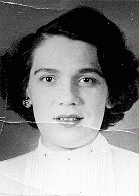
Reidar was the third of four sons born to religious Lutheran parents in a small seafaring and whaling town along the Norwegian coast. Reidar's father was a civil servant. Reidar attended public school and dreamed of becoming a musician. 1933-39: Although Reidar was not interested in politics, he sympathized with his Jewish neighbors who had come as refugees from Germany. In fall 1939 he was saddened when Germany attacked Poland and the USSR attacked Finland. Several days later, his oldest brother passed…
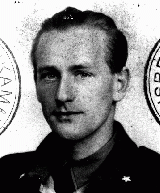
Known as Monek, Martin was the elder of two children raised by Jewish parents in the large town of Tarnow. His mother was an American citizen who had been raised in Poland. His father worked at the city's tax office. As a child, Martin liked to collect stamps and catch lizards. His parents wanted him to be a pharmacist, but he wanted to be an artist when he grew up. 1933-39: When the Germans occupied Tarnow in September 1939 after war began, Martin was 10 years old. The soldiers, in beautiful uniforms,…
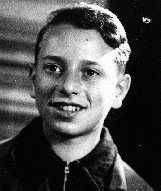
Wolfgang was the only son of observant Jewish parents living in Berlin. Though trained as a mechanical engineer, Wolfgang's father ran a wholesale kerchief and handkerchief business that he had taken over from his father-in-law. Wolfgang's family lived in an apartment above the business. They enjoyed vacationing at their country home in Neuenhagen, a suburb of Berlin. 1933-39: Wolfgang began school when he was 5; that year Hitler was named leader of Germany. Every morning they had to sing three songs: the…
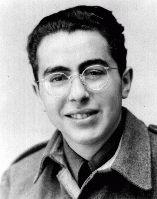
We would like to thank Crown Family Philanthropies, Abe and Ida Cooper Foundation, the Claims Conference, EVZ, and BMF for supporting the ongoing work to create content and resources for the Holocaust Encyclopedia. View the list of donor acknowledgement.